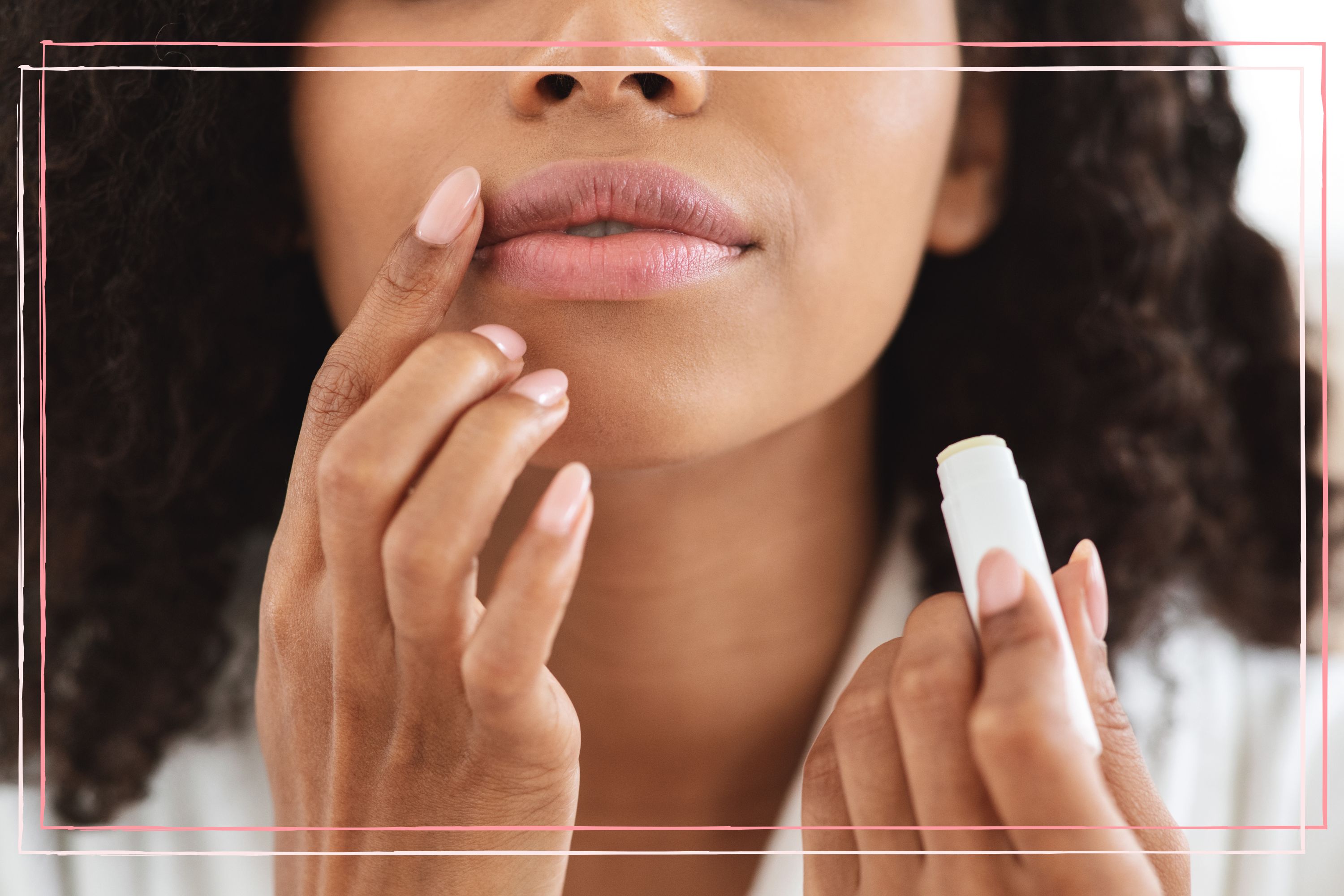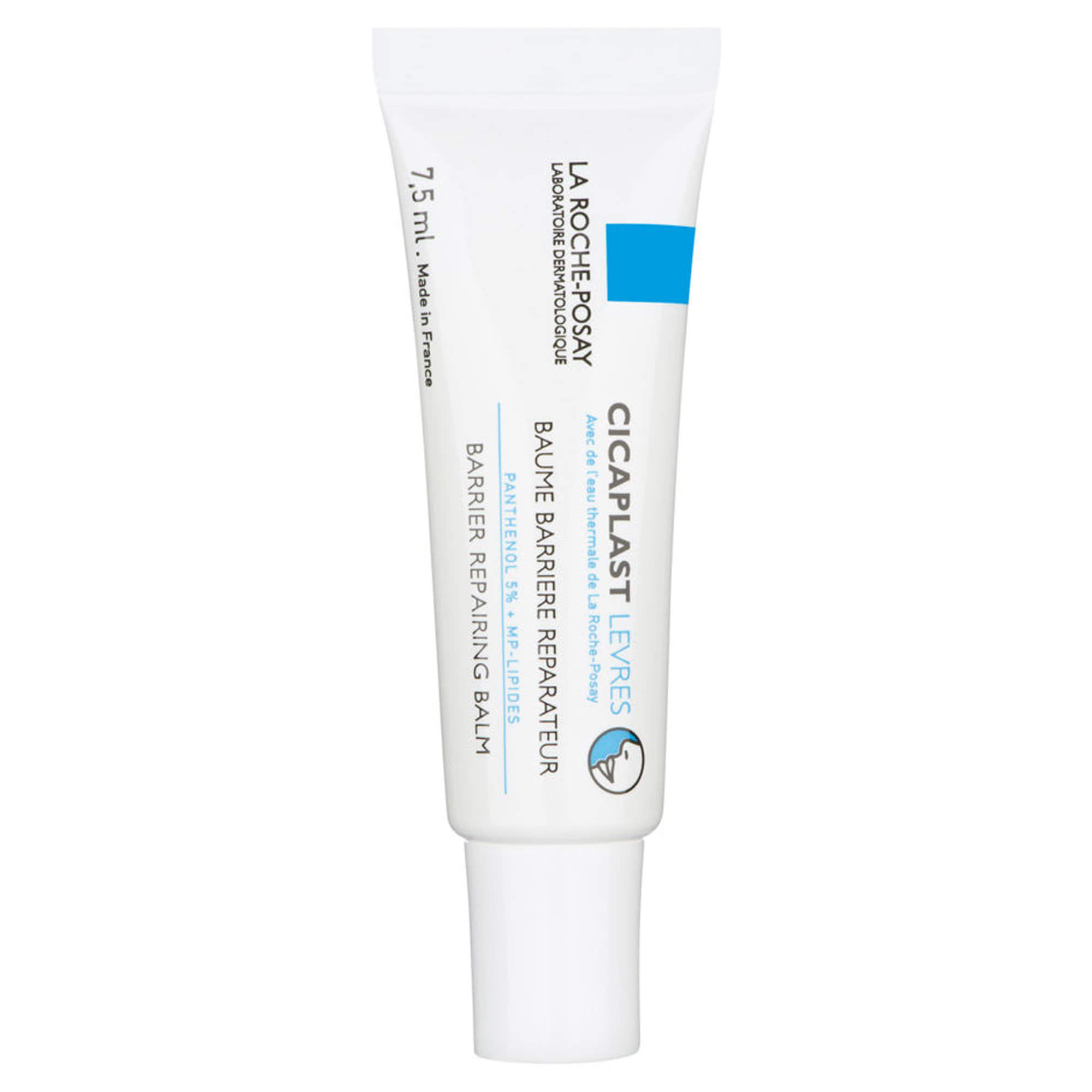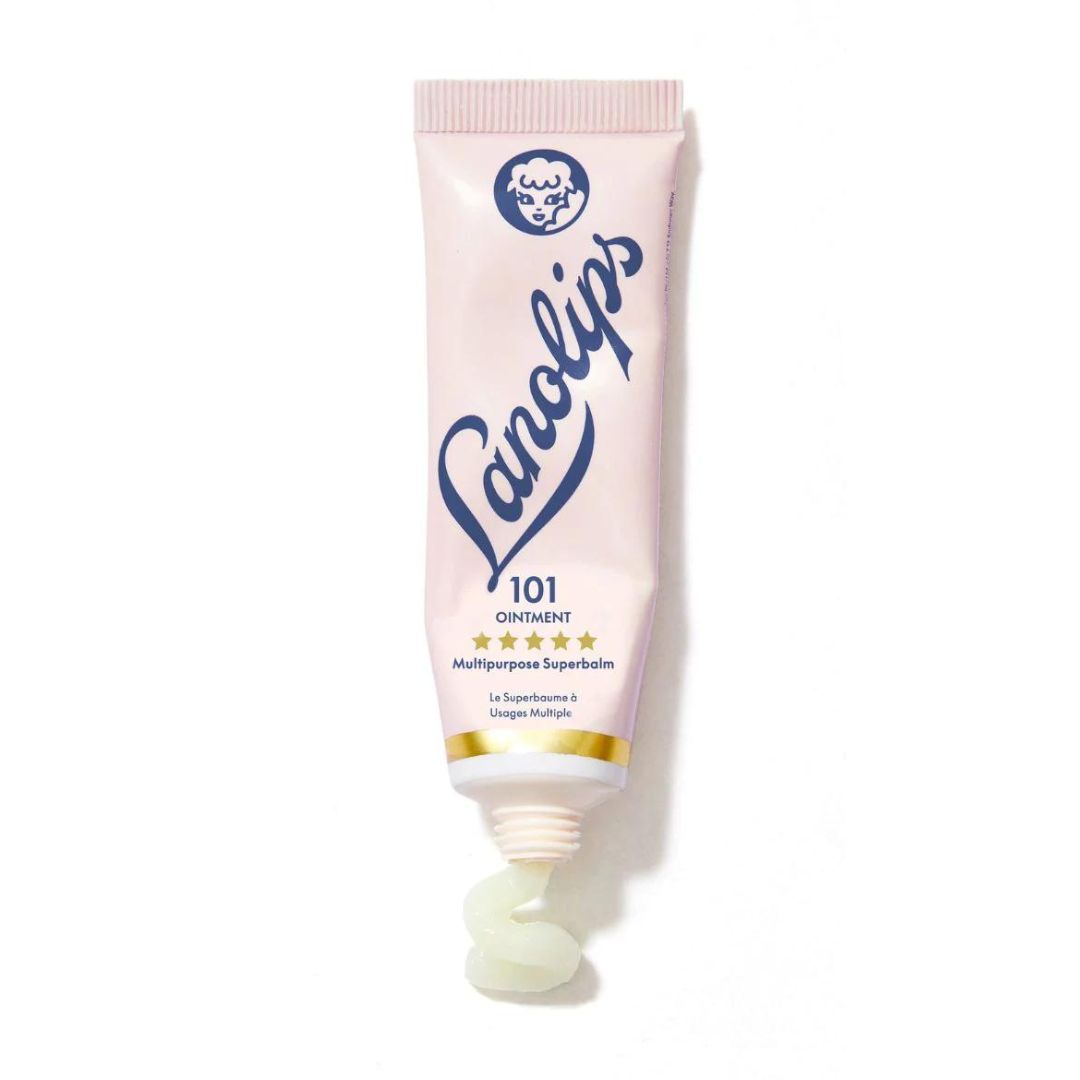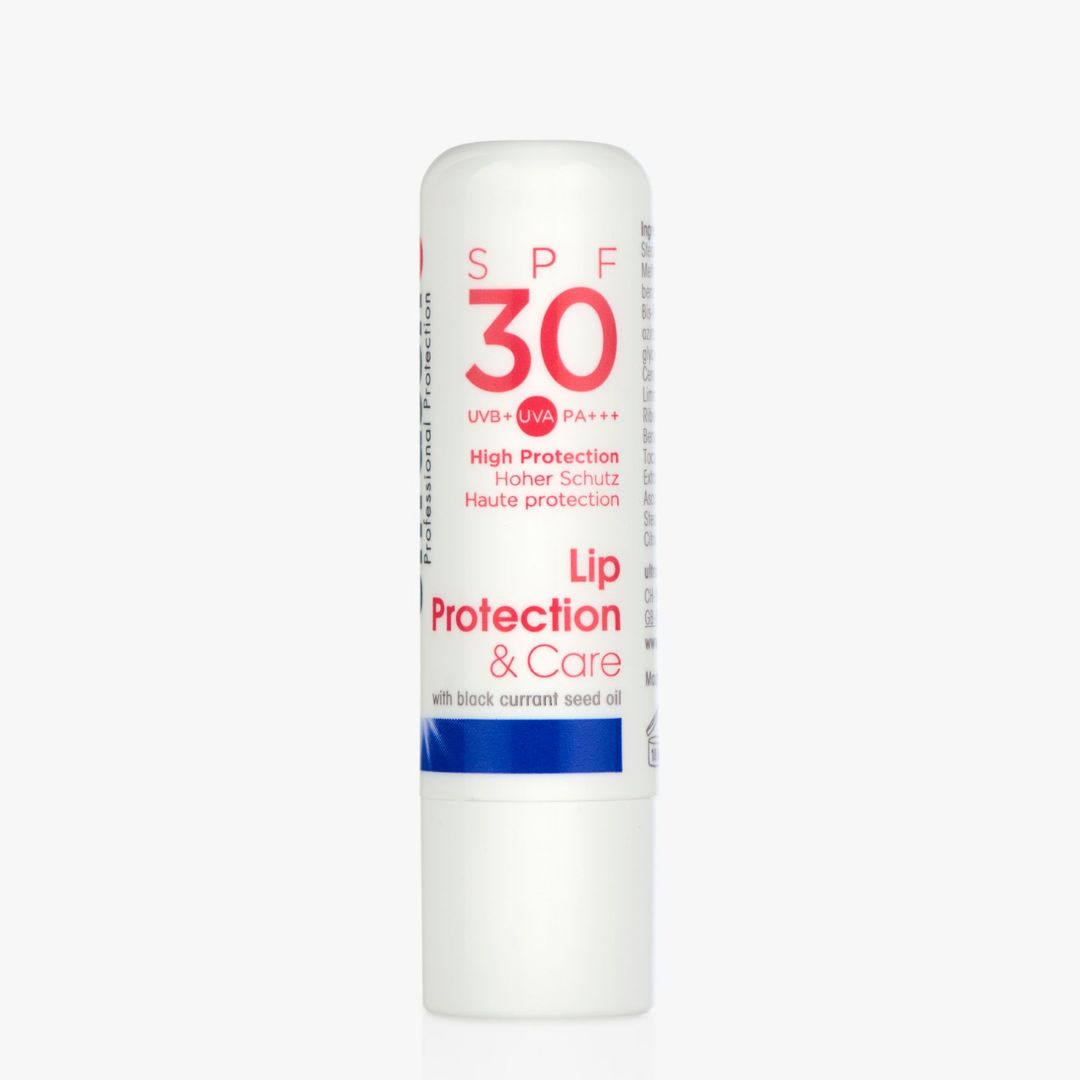Dry lips in pregnancy: Causes, remedies and 3 expert-recommended lip products to try
Experiencing dry lips in pregnancy? We spoke to two skin experts to narrow down possible causes, as well as a fail-safe treatment plan.


One of the lesser-known maternity side effects is dry lips in pregnancy. It’s surprisingly common, with lots of people noticing their skin feeling drier, and lips looking chapped.
Often the treatment for dry lips in pregnancy isn't as simple as just using a bit of lip balm, as you can with hands with your best hand creams. The good news is that just like other side effects like hair changes in pregnancy, the dryness is usually temporary. That doesn't mean it's any less irritating though, so we spoke to the experts to find the best solutions, as well as explanations for the causes.
“During pregnancy, it is not uncommon to get dehydrated,” explains consultant dermatologist Dr Justine Hextall. “With the increasing circulation, it is important to maintain optional fluid balance to support it. If the pregnancy is complicated with morning sickness or gestational diabetes then dehydration is even more common. Skin can be more sensitive and dermatitis and lip dryness and irritation can develop."
Causes of dry lips in pregnancy
1. Hormonal changes
As you probably already know, the surge in hormones during pregnancy has a lot of repercussions, and it's also a factor in dry lips during pregnancy. According to Ear Nose and Throat surgeon and Medical Director of the Atelier clinic, Dr Aggie Zatonska, it's a common cause of dry lips in pregnancy.
"Fluctuations in hormone levels during pregnancy can lead to dehydration and dryness, which includes dry lips," she says.
2. Dehydration
As Dr Hextall touched on earlier, dehydration is a very common reason for dry lips during pregnancy.
Dr Zatonska agrees, explaining that, "Pregnant women often require more water to support the increased blood volume and amniotic fluid, and dehydration can manifest as dry lips."
Parenting advice, hot topics, best buys and family finance tips delivered straight to your inbox.
3. Nutritional deficiencies
"Inadequate intake of essential nutrients like vitamins A, C, and E, as well as insufficient hydration, can contribute to dry lips during pregnancy," explains Dr Zatonska.
She continues, "Omega-3 and omega-6 fatty acids are crucial for maintaining skin health, including moisture retention and barrier function. Inadequate intake of these essential fatty acids can lead to dry, flaky skin. Zinc deficiency can also result in dry, flaky skin and delayed wound healing."
4. The enviroment
While a lot of internal changes can cause dry lips in pregnancy, some external factors can cause issues too. Dr Hextall explains, "If the weather is cold, the air is often dry and this alongside cold winds can leave lips dry and chapped."
Dr Zatonska agrees. "Extreme weather conditions, such as cold winds or hot, dry temperatures, can also contribute to lip dryness," she says. "Exposure to harsh weather elements without proper protection can exacerbate the problem. Plus, environmental pollutants, such as dust, smoke, and chemicals, can irritate the skin and contribute to dryness. Pregnant women may be more susceptible to the effects of pollution due to hormonal changes and increased sensitivity during pregnancy."
Remedies for dry lips in pregnancy
1. Hydrate, hydrate, hydrate
If dehydration can cause dry lips in pregnancy, an easy fix is to up your water intake. "Drinking plenty of water throughout the day helps maintain moisture levels in the body, including the lips," advises Dr Zatonska.
Dr Hextall recommends that "if travelling around carry a bottle of water". She adds, "Avoid too many caffeinated drinks as these can cause dehydration and are not recommended in excess in pregnancy."
2. Consider your diet
If your body is deficient in those vital vitamins, up your intake to keep your skin balanced. According to Dr Hextall, this will also benefit your baby. "Making sure that diet is rich in Omega-3 can help to support natural fats and oils in our skin and are also important for neuro-development in the foetus. Two servings of low-mercury fish such as wild salmon and sardines, walnuts and tofu amongst others are recommended. Pregnancy-safe Omega-3 supplements may also be recommended."
3. Try a humidifier
If your skin is particularly parched, using a humidifier can keep your skin supple and hydrated, especially if you use one overnight. Dr Zatonska explains that "Using a humidifier in the bedroom can add moisture to the air, preventing further drying of the lips during sleep."
4. Moisturise consistently
If you've been reaching for your lip balm more during this time, you'll be pleased to know you're doing the right thing to combat dry lips in pregnancy. "Apply a moisturising lip balm or ointment regularly throughout the day to keep your lips hydrated and prevent further dryness," advises Dr Zatonska. "Look for products containing ingredients like shea butter, coconut oil, or hyaluronic acid. Using a moisturizing lip balm with a sun protection factor (SPF) helps protect the lips from further drying and damage caused by sun exposure."
Dr Hextall explains that using the right lip formula is key for treating dry lips in pregnancy. "Carry a suitable lip balm that can protect the skin from getting dry and chapped. Look for a combination of humectants such as glycerin, hyaluronic acid and or panthenol that help to draw moisture to the lips. You then want ingredients that can help to seal this moisture so look for rich emollient ingredients such as shea butter, ceramides and vitamin E."
If your lips are still chapped even with consistent balm application, Dr Hextall warns that you could be using an unsuitable formula. "Look carefully at ingredients as sometimes we can develop a sensitivity and even an allergy to lip balm ingredients, signs that suggest this include, the more you apply the more you need to assuage the subsequent skin dryness and irritation. It may be an allergy to a perfume, colour or preservative in the balm. If you suspect this stop and try a different product and see if things settle."

This is an impressively repairing formula that makes an instant difference to even extremely chapped lips. Even better, it's one of Dr Hextall's favourite formulas too. "I recommend Cicaplast Lip from La Roche Posay as it is soothing and richly emollient, and has very few ingredients that can cause irritation or allergy."

Every member of our beauty team adores this multitasking balm, which contains just one ingredient - 100% pure lanolin. It's intensely nourishing and rich and is also available in tinted versions if you want to add a subtle pop of colour to your lips. The extra benefit is that it's a multitasker, working well on other post-pregnancy gripes, like sore nipples.

Keep your pout protected from the sun by using a balm with UV protection. This has a high factor 50, while also including hydrating ingredients recommended by the experts, including shea butter, argan oil and Vitamin E. The handy stick formula makes application quick and easy.
Remedies and ingredients to avoid when treating dry lips in pregnancy
You probably know that it's important to avoid certain foods and skincare ingredients during pregnancy, and that applies to your lip care too. Dr Zatonska explains, "When choosing lip care products during pregnancy, it's essential to avoid certain ingredients that may be potentially harmful. These include retinoids (such as retinol), salicylic acid, and certain essential oils like peppermint and eucalyptus. Instead, opt for products with safe and soothing ingredients like shea butter, cocoa butter, beeswax, and natural oils."
Looking for more pregnancy beauty advice? We've asked the experts about six common hair changes in pregnancy. For busy mums, check out our round-ups of the best 5-minute face masks and the best eye creams for dark circles.

Dr Hextall is a Consultant Dermatologist and has been working in the NHS for more than a decade. She is the medical director of the Tarrant Street Clinic and an expert in rosacea, acne and skin cancer.

Atelier's founder and Medical Director is an ENT Surgeon with over 15 years of experience in medical aesthetics. From a very young age, her medical background steered her on the aesthetic path. Sculpture inspires and reflects Dr. Aggie's artistic flair and gentle approach to achieving subtle, natural enhancements. As a trustee member of BCAM's board, Dr. Aggie has been a regular speaker and contributor to numerous media articles. She is frequently invited to provide insight into the latest techniques and trends in aesthetics as a guest expert.

Rhiannon Derbyshire is the Senior Beauty Editor for Goodto, Woman & Home and other publications. She’s specialised in writing about beauty, fashion, interiors and health - though beauty remains her favourite topic. She lives in south London, and can often be found pootling around the commons while listening to a podcast.